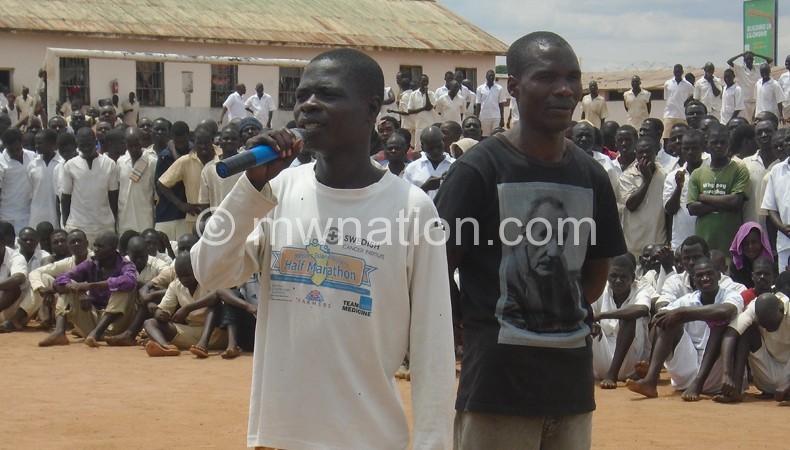Man abandoned in jail for 8 years

A man arrested at the age of 17 in Salima has been languishing in the country’s jails for over eight years without trial despite being granted bail five years ago, Nation on Sunday has learnt.
The newspaper has further learnt that many inmates are dumped in the country’s jails for years without trial or while waiting for judgements, raising questions about the talk about access to justice and fair trial in the country’s justice delivery system.
At Maula Central Prison in Lilongwe, several inmates including 25-year-old Zalimba Kamuna and Owen Chikwakwa, who have been waiting for trial and judgement since 2006 and 2011 respectively, narrated their ordeals in separate interviews this week.
Kamuna might now be a man; a man hardened by years spent in tiny jail cells but at 17, when he is alleged to have committed homicide, he was a minor living in a community rundown by poverty and social ills that forced him to abandon school for early marriage.
He was uneducated and trapped into the poverty trap, factors, which he believes have contributed to his prolonged wait for justice.
“I am innocent of any crime. But I have seen people walk in and walk out of this prison. I have been to several prisons, too. I have been to juvenile prisons and I have been to Nkhotakota Prison and this prison. I don’t know when I will be tried,” said Kamuna.
He was arrested in 2006 at his village in Salima on suspicion that he killed his three-year-old child.
The inmate, who might have fathered his child at 15, denies the charge but cannot afford a lawyer due to poverty.
“I feel abandoned, even my wife doesn’t visit me. She has not visited me a single day since I was arrested. Only my elder brother, Jackson, visits me. I was arrested in Salima and was taken to Nkhotakota Prison for a short period and since I was a juvenile, I was transferred to Kachere Prison where I stayed for three years before being transferred to this prison where I have been since 2012,” narrated Kamuna.
He was among several inmates who were asked to speak at the commemoration of this year’s International Human Rights Day at Maula Prison in Lilongwe, a function attended by several dignitaries including judges, human rights defenders, officers from the Directorate of Public Prosecutions, police, senior prison authority officers, prosecutors, among others.
On his part, Chikwakwa said while he went through a full homicide trial which ended in 2011, he is yet to receive judgement on the matter.
Ken Manda, a High Court judge and head of the Prison Inspectorate Commission, described the cases as strange, saying court records on the matter indicate Kamuna was granted bail five years ago.
“It happened due to poor record keeping and this is why we need to introduce a system that keeps proper records,” said Manda.
He was, however, quick to add that Kamuna’s case is not a symptom of a wider problem in the justice delivery system.
“In most cases, they have been granted bail but they can’t afford bail bond money or can’t have sureties. What we normally advise is for the person to go back to court and ask the court to reconsider the conditions,” said Manda.
He said the Prison Inspectorate Commission recommended several steps to relevant authorities such as the Ministry of Justice, the Director of Public Prosecutions and the Judiciary to review the case.
Seemingly, due to illiteracy and ignorance, Kamuna does not even understand that his failure to provide surety to the court after he was granted bail, is the reason he has not been released by authorities to-date.
“No one has explained to me why I am still in jail. I just know that I am waiting for a trial,” he said.
But Irish Rule of Law International team leader and civil rights lawyer Jane O’Connell, whose organisation works with the Legal Aid Directorate to promote rule of law and improve access to justice in the country, said it is imperative that these cases are quickly concluded.n





